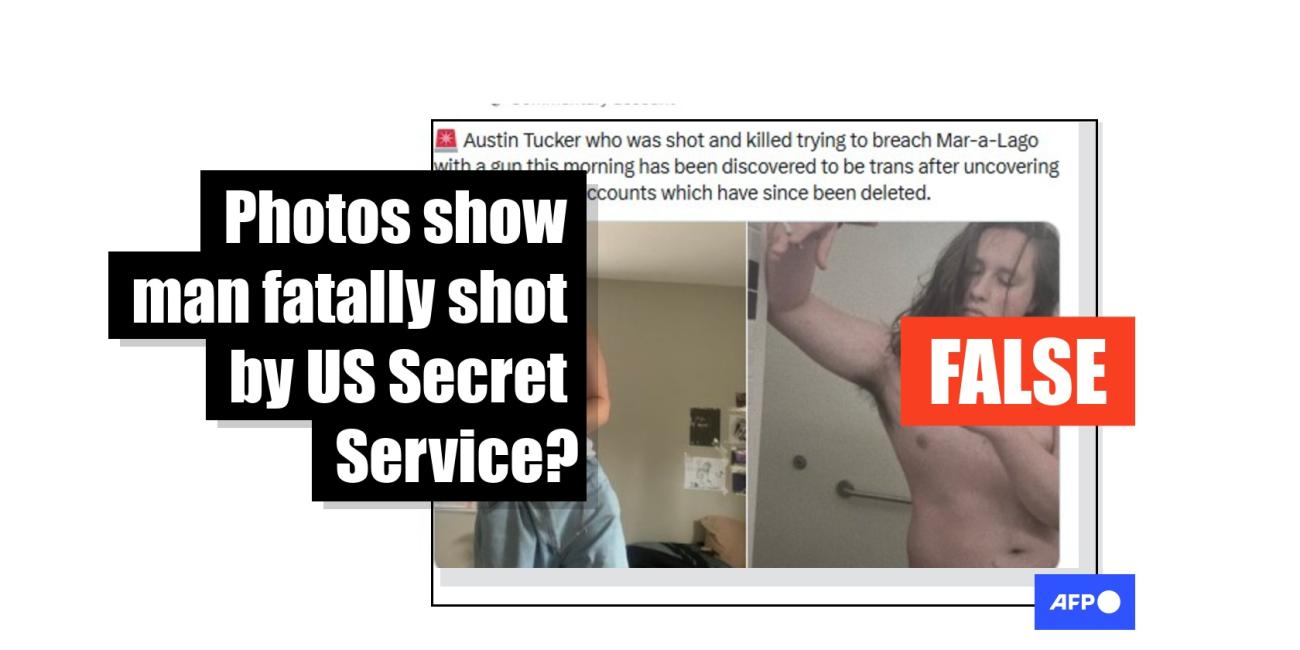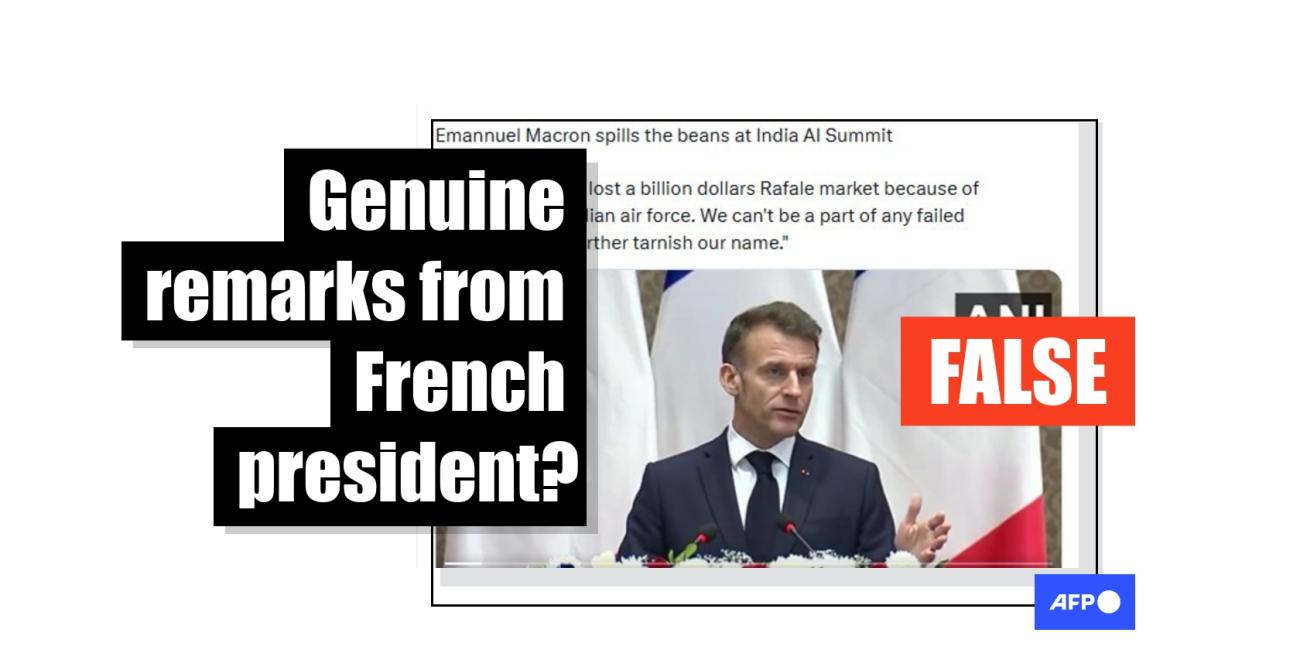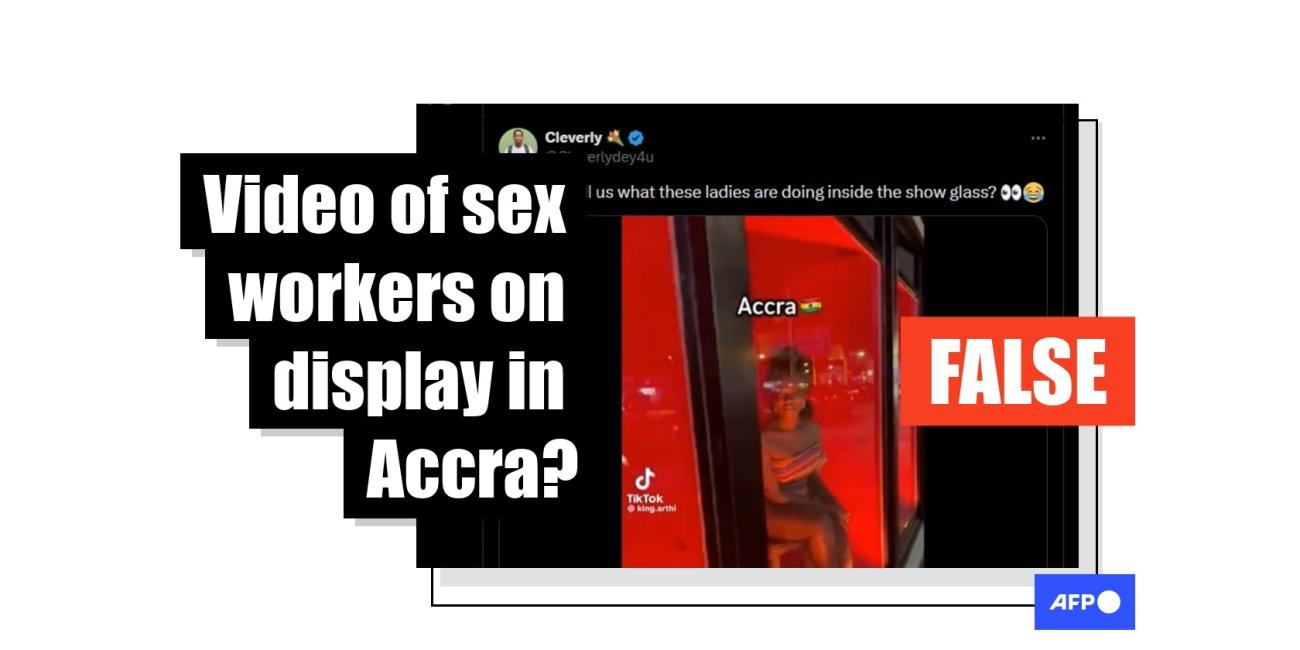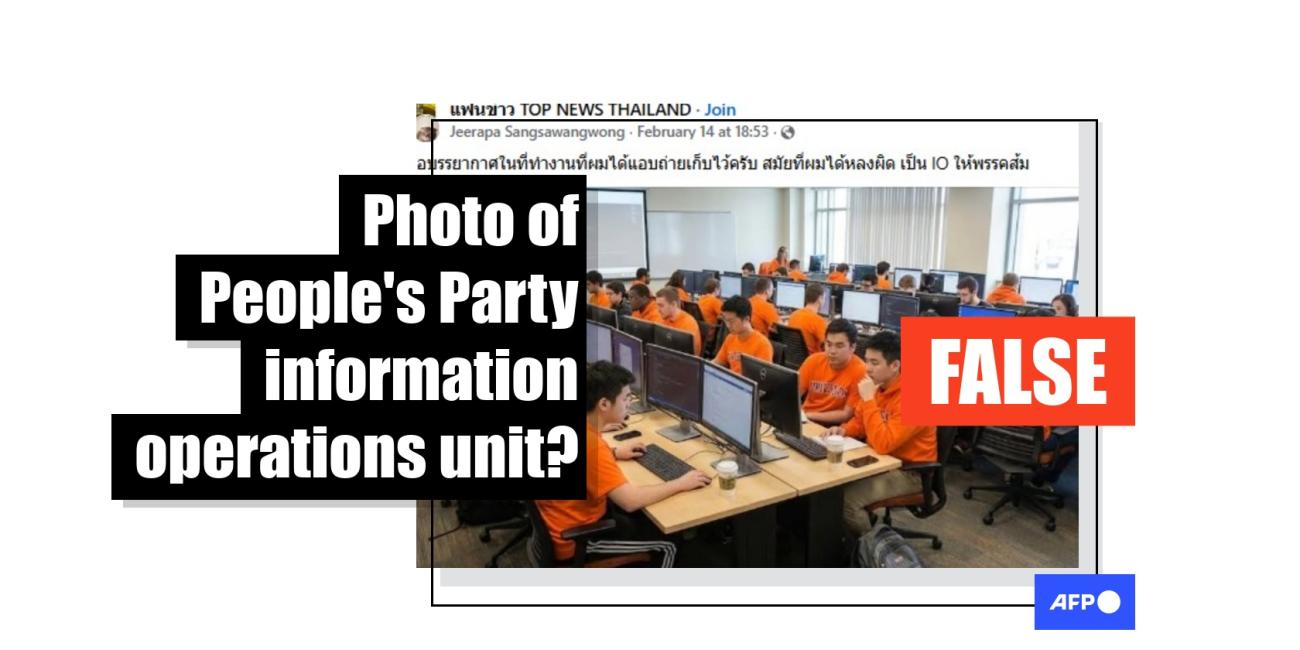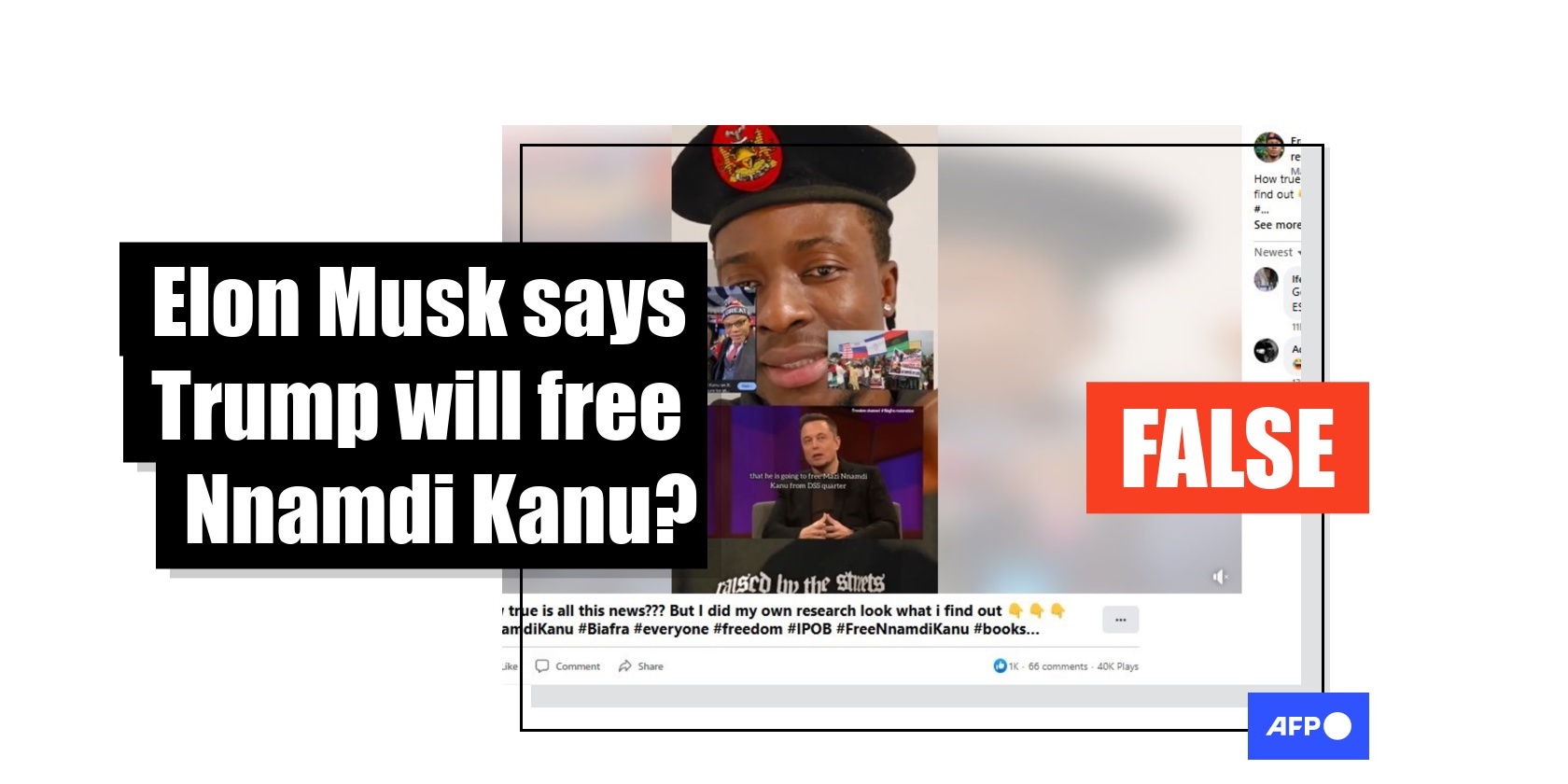
Video of Musk saying Trump will secure Nigerian separatist’s freedom is deepfake
- Published on March 20, 2025 at 16:05
- 2 min read
- By Oluseyi AWOJULUGBE, AFP Nigeria
“As my good friend Mr President Donald Trump has already said, he is going to free Mazi Nnamdi Kanu from DSS quarters because the Nigerian court has already discharged and acquitted him in October 2022 and also support Biafra referendum (sic),” Musk appears to say in the clip.
Supporters of the Indigenous People of Biafra (IPOB) movement have been pushing for the independence of Nigeria's southeast, where a bloody civil war was fought in the late 1960s.
Nnamdi Kanu, the founder of the movement, is on trial in Nigeria after he was extradited from Kenya (archived here).
In the video, Musk went on to repeat a claim about Trump expressing his support for the Biafra secessionist movement, which AFP Fact Check has previously debunked as being false.
The video has been shared almost 700 times since it was published on March 1, 2025.
The page on which it was published shares content about the separatists and has more than 97,000 followers.
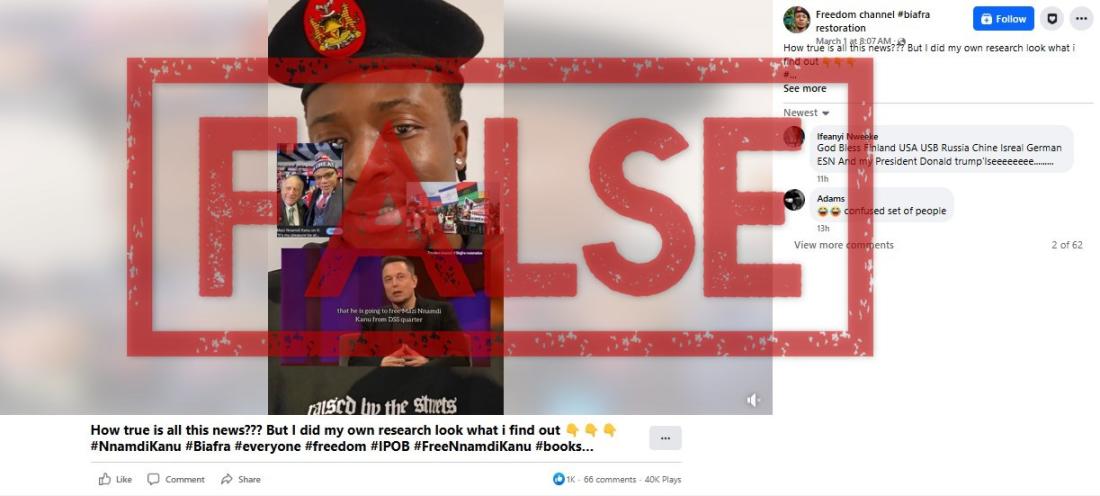
However, Musk did not make this statement; the video was generated using AI tools.
AI video template
The first clue that the video is AI-generated is that the words spoken are not in sync with the movement of Musk’s lips.
AFP Fact Check conducted a reverse image search on keyframes extracted from the video using the InVID-WeVerify tool.
This led to a 2017 TED Talk conference video (archived here).
The original footage, lasting 40 minutes, showed Musk talking about building tunnels to eradicate traffic and his company Space X’s plans for the future, including exploring Mars.
He didn’t mention Nigeria, Biafra, or Kanu in the entire speech.
Apart from the different audio, all the elements in the clip and the TED Talk match: the decor, Musk’s clothes, and his gestures.
This suggests that the AI-generated clip was created using the basis of this TED Talk.
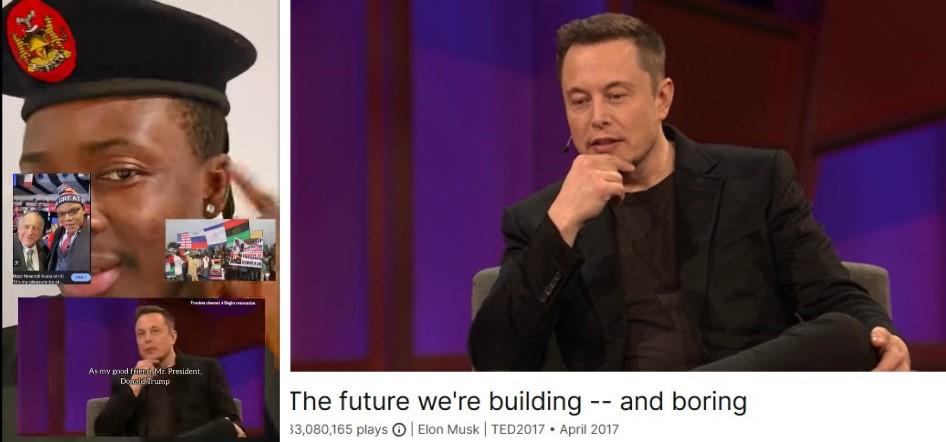
Numerous online tools exist for creating deepfakes, which use AI to modify what a person says in a video.
Some of these tools, like the website Elontalks.com -- which AFP Fact Check has written about in a previous debunk – even suggest templates of certain public figures, including Barack Obama, Snoop Dogg, and Musk, who can then “read out” text inputted by users. One of the templates that the site offers for Musk is his 2017 TED Talk footage.
Videos generated by this site bear its logo in the top-right corner. In the case of the clip of Musk purportedly saying Trump will free Kanu, a different text appears in the same spot, but it is too small to be legible. It is unclear whether this text was used to cover up the logo or if the clip was created using a similar tool.
AFP Fact Check has debunked many claims that contain AI-generated images and videos. You can read our debunks on the topic here.
Copyright © AFP 2017-2026. Any commercial use of this content requires a subscription. Click here to find out more.
Is there content that you would like AFP to fact-check? Get in touch.
Contact us
